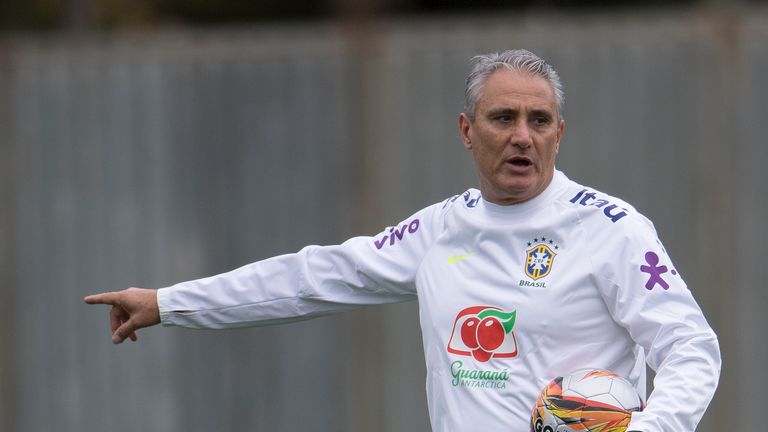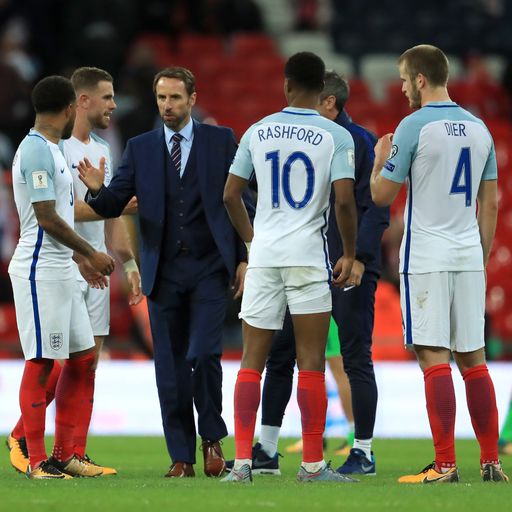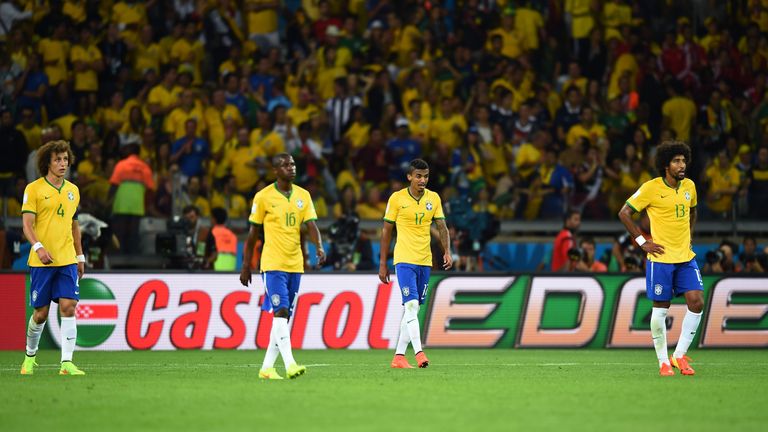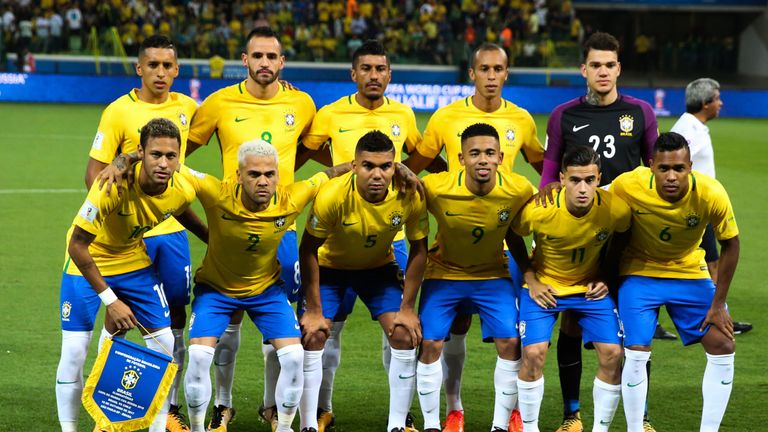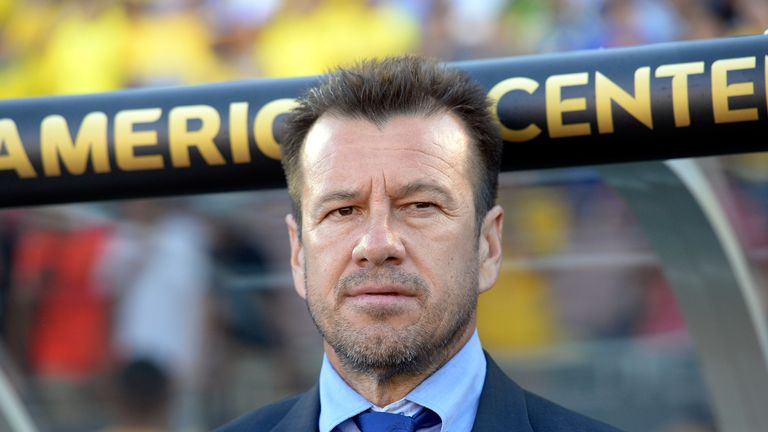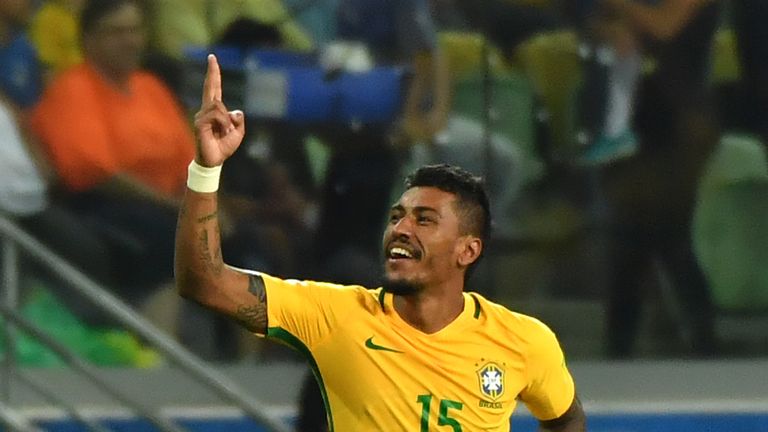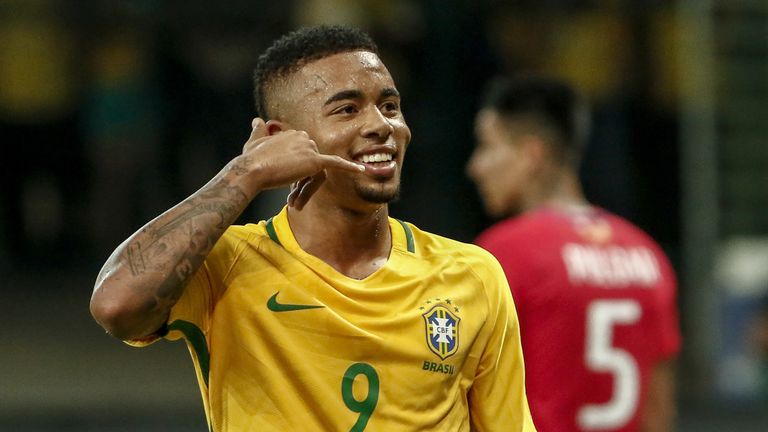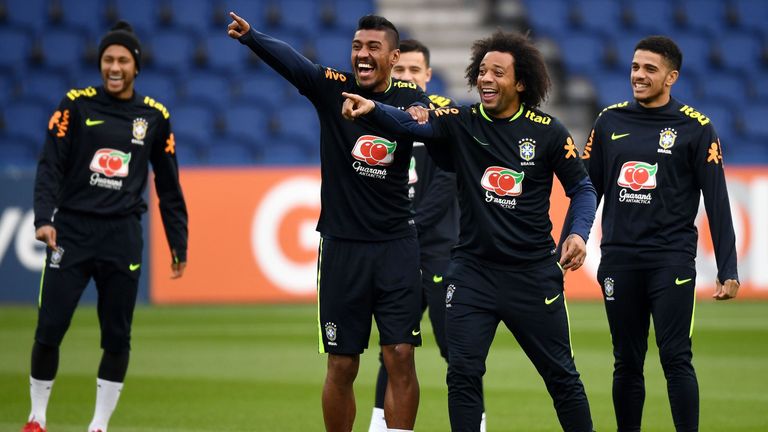How Brazil turned things around after reaching their lowest ebb
Tuesday 14 November 2017 19:43, UK
After humiliation as tournament hosts at the 2014 World Cup, Brazil are back at the top of the game - but how have they done it?
We take a look at how the selecao have turned things around to become the force everyone expected them to be...
Brazil 1-7 Germany
It was written in the stars that Brazil would make the final on their own patch, but instead a team missing Neymar were stunned by Germany in July 2014, as Joachim Low's side went 5-0 up inside half an hour, as Luiz Felipe Scolari's team failed to compete with the eventual World Cup winners. A country famed for their football team had been humiliated at home and the only positive was that things could not get any worse.
Scolari out, Dunga in
Big Phil was out and Dunga was back in. It was the former Brazil captain's second time in charge of the national team, having previously had the role for four years from 2006. After being overrun by Germany, the new coach quickly worked on making his team more stable in midfield. Dunga got the team back together and created a cohesive unit, as the players tried to get the fans behind them once again.
Lost to Paraguay in Copa America 2015
There is no doubting Brazil were not at their best, but bowing out of the Copa America to an average Paraguay team was not acceptable. Robinho had opened the scoring for Brazil before his side conceded an equaliser from the spot. Douglas Costa and Everton Ribeiro missed from 12 yards in the shootout. There was a distinct lack of creativity in the selecao, as they struggled to make chances. After the game, Dunga claimed he had 15 players suffering from a mystery illness. It was so mysterious the players didn't know anything about it. Dunga departed soon afterwards.
Trending
- Papers: Liverpool set to launch double raid for Pedro and Frimpong
- Trent: We've sent a statement to title rivals - but don't rule Man City out yet
- PL Predictions: Man Utd to punish shambolic Man City
- Transfer Centre LIVE! Guardiola says Man City January signings possible
- Verstappen collects F1 trophy in Rwanda
- Ange: I'm not worrying about bruised egos after Werner criticism
- Tuchel on: Kane's captaincy, Palmer's form, England WC prospects
- England, Scotland, Wales, NI and ROI discover WC qualifying fixtures
- Derby 4-0 Portsmouth free highlights
- Amorim: Man Utd was my only option - Man City was never a possibility
Dunga out, Tite in
When it was time for Dunga to head through the exit door, there was only one man for the top job in Brazil. Tite moved from Corinthians to the national team. Seen as a good man-manager, who would be able to keep the players in check, he was seen as the progressive choice after years of old school coaches. Casemiro, Fernandinho and Paulinho became integral to the system, even though they do not always feature together, giving the team a more solid base to work from, also ensuring the mistakes of the past were not repeated. It is possible that Tite will now use upcoming friendlies to try a more conservative formation, as he knows all too well the risk of being too open against teams who can retain possession better than their usual South American opposition.
ESPN Brazil's Natalie Gedra told Sunday Supplement: "There's a reconciliation process now, people are getting back to getting excited about the national team, which is good as the national team represents a lot.
"Tite was a huge part of all these changes. He's a very trustworthy guy, he's honest and he's charismatic, so people really like him. Recently there was a poll where 15 per cent of people said they'd vote for him to be president of our country, so that's how much people like him. It's very important for him to change the relationship people have with the national team, to get them closer.
"The players really back him up; he has a thing for really getting the players to buy into his ideas and he earned the respect with everything he has done with Corinthians, he has won everything there and then he just decided to take a sabbatical year because he wanted to study and be better. He keeps impressing people as he is a very humble guy, he isn't superstar, media guy."
Coming in from the cold
Many thought Paulinho's top-level career was well and truly over after being left in the international wilderness and moving to China. Tite, however, had a different idea and brought the former Spurs man back into the selecao squad. Since becoming an integral member of the national team, Paulinho earned himself a move to Barcelona, much to the surprise of those who witnessed his Premier League displays. Thiago Silva and Marcelo, who were left out by Dunga, also returned to the set-up, giving much-needed experience to the defence.
Gabriel Jesus
As Manchester City fans will testify, Gabriel Jesus is an impressive young striker, which means Brazil are no longer reliant on Neymar - something that heaped plenty of pressure on the Paris Saint-Germain forward. The 20-year-old former Palmeiras striker has scored six goals in his first 11 appearances for his country. Prior to his breakthrough, Brazil were inexplicably short of goalscorers. The likes of 32-year-old Diego Tardelli, who plays in China, and Robinho were still in squads until recently, which is a sign of the dearth in talent on offer to Tite. The forwards have been assisted by a more attacking mindset brought about by Tite, who is encouraging his side to go forward, which wasn't always the norm under the defensively diligent Dunga.
No captain
The head coach has decided a good way to keep his players motivated is by rotating the captaincy. Tite has so far given 12 different players the chance to captain the side, something which has invigorated the squad as they look to be the next man with the armband and has led to a collective sense of leadership during the qualifying campaign. Real Madrid midfielder Casemiro was given the chance to lead the side in October and said: "It's an immense pride for me to be captain of the national team. Just being here is already a source of pride. I have no words to describe how happy I am to be captain."
Top of world rankings
Brazil made it back to the top of the sport in August 2017. They've been defeated once since March 2016 when they surprisingly lost at home to Peru. Throughout their World Cup qualifying campaign there was only a single defeat for the team, as they gained consistency and durability. Now they need to keep that form going when they get to Russia next year.
